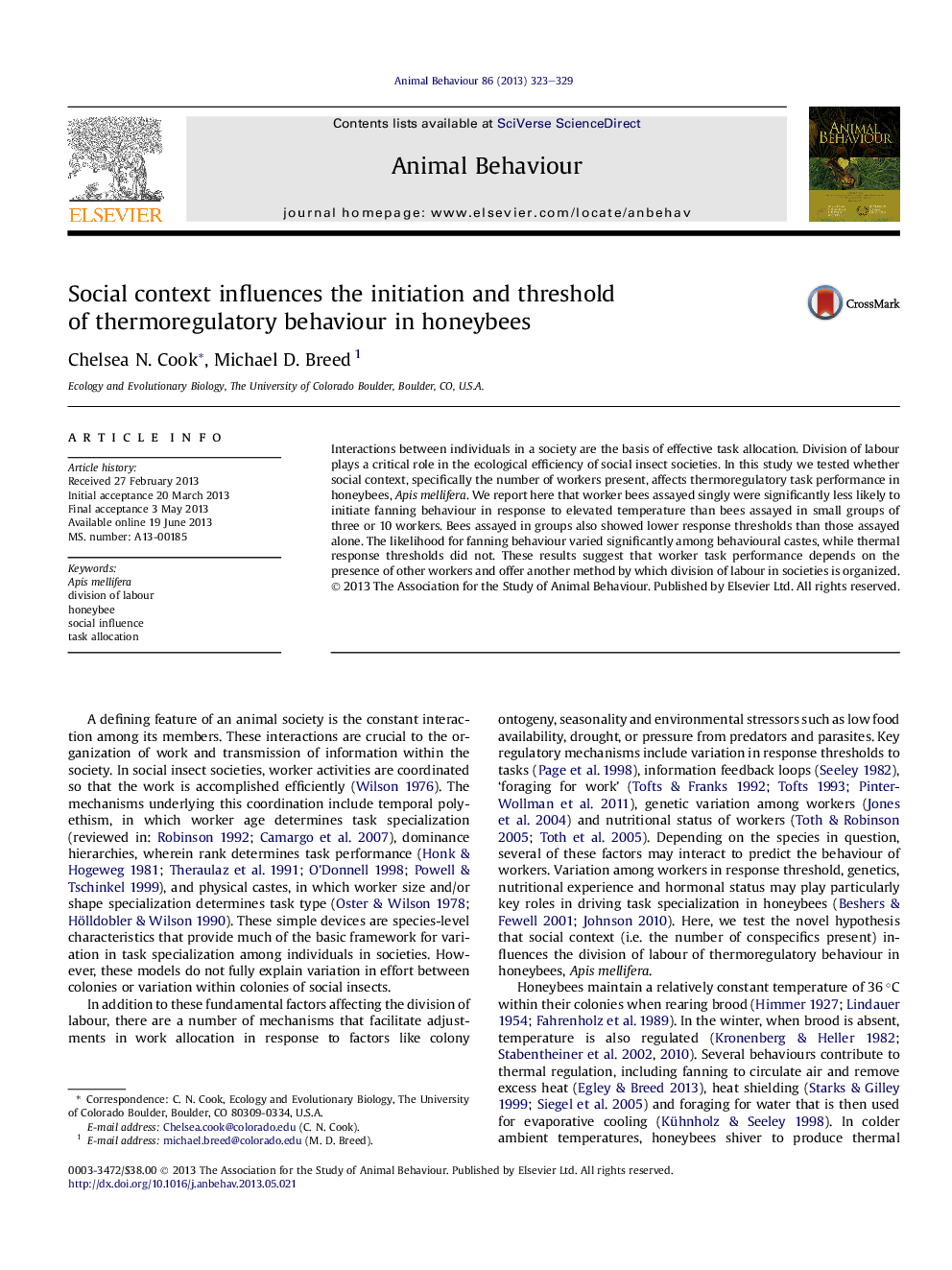| Article ID | Journal | Published Year | Pages | File Type |
|---|---|---|---|---|
| 2416597 | Animal Behaviour | 2013 | 7 Pages |
•We tested whether social context (number of workers) affects thermoregulatory task performance in honeybees.•Honeybees were more likely to fan in groups of 3 or 10, compared to when isolated.•As group size increased, the thermal threshold at which bees fanned decreased.•Some behavioural castes were more likely to fan than others.•There were no differences in thermal threshold across behavioural castes.
Interactions between individuals in a society are the basis of effective task allocation. Division of labour plays a critical role in the ecological efficiency of social insect societies. In this study we tested whether social context, specifically the number of workers present, affects thermoregulatory task performance in honeybees, Apis mellifera. We report here that worker bees assayed singly were significantly less likely to initiate fanning behaviour in response to elevated temperature than bees assayed in small groups of three or 10 workers. Bees assayed in groups also showed lower response thresholds than those assayed alone. The likelihood for fanning behaviour varied significantly among behavioural castes, while thermal response thresholds did not. These results suggest that worker task performance depends on the presence of other workers and offer another method by which division of labour in societies is organized.
